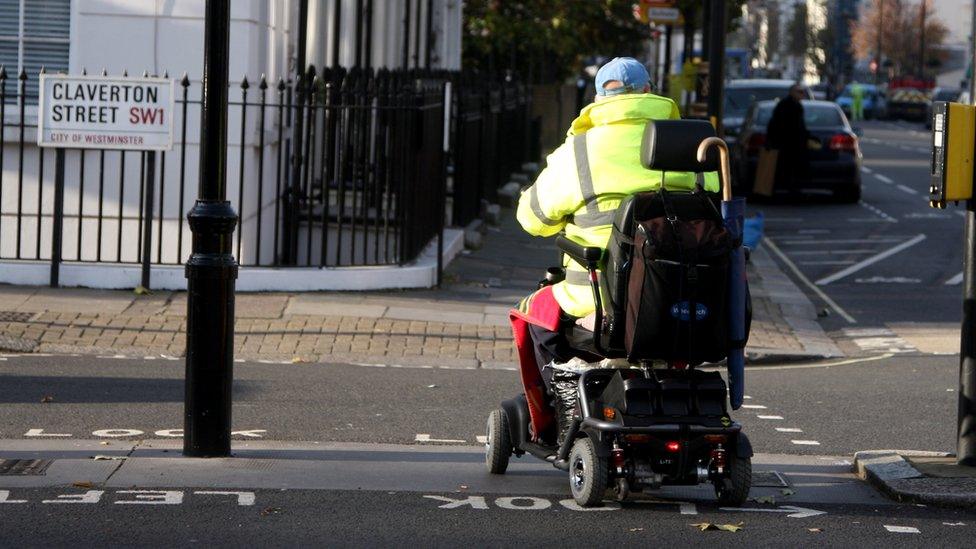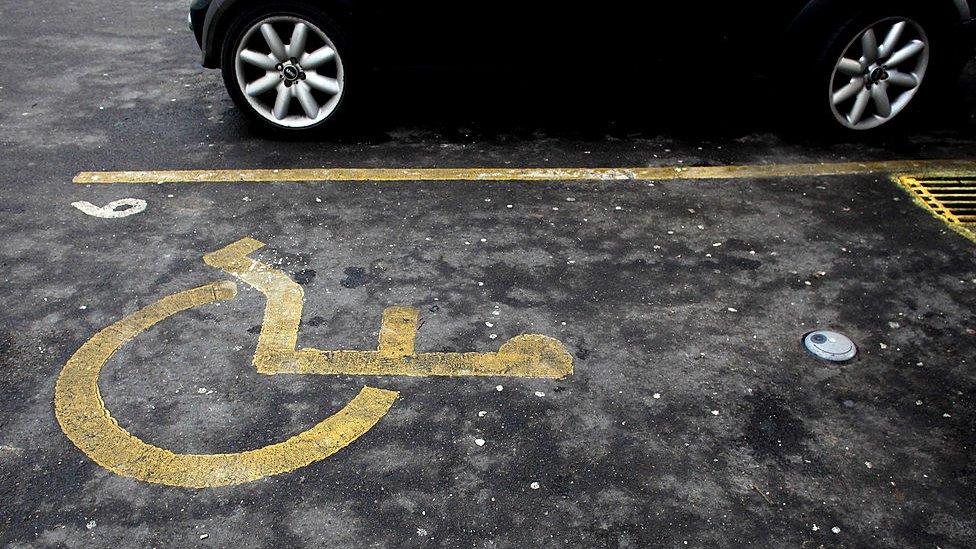PIP assessments: 'Lack of trust' in benefits systems
- Published

Failings in disability benefits assessments - including claimants being asked when they had "caught" Down's syndrome - have led to a "pervasive lack of trust" in the system, MPs say.
The Commons Work and Pensions Committee said reports by private contractors for the two main disability benefits, PIPs and ESA, were "riddled with errors".
And it said contractors "universally missed", external the set performance targets.
A government spokesman said the assessments worked for the "majority".
'Shocking and moving'
The committee said it had received an "unprecedented" number of responses from people who had claimed Personal Independence Payments (PIP) or Employment and Support Allowance (ESA).
Almost 4,000 claimants detailed "shocking and moving, credible and consistent" accounts, the report said.
A recurrent complaint was that claimants did not believe the companies' assessors could be trusted to record evidence of their conditions accurately.
One claimant was said in her assessment report to walk her dog, despite not owning one and being barely able to walk at all
Attempts to self harm being left out of assessment reports
Another claimant, who remained in bed throughout her interview at home, was reported to have risen from a chair "without any difficulty" even though the only chair in the room was the one the assessor was sitting
A former benefits assessor told the BBC some of her ex-colleagues "copy and pasted" their assessments.
The unnamed woman told Victoria Derbyshire: "The nurses (assessors) were under a lot of stress and I think it led to a lot of mistakes."
A former benefits assessor told Victoria Derbyshire that ex-colleagues "copy and pasted" reports
The MPs' report said ministers should consider taking the process back in-house from Capita, Maximus and Atos when contracts come up for renewal in 2019 and 2020.
'Professional and compassionate'
Committee chairman Labour MP Frank Field said the shortcomings were causing "untenable" human and financial cost.
"No-one should have any doubt the process needs urgent change," he said.
A Department for Work and Pensions spokesman said: "As the Work and Pensions Select Committee highlights, assessments work for the majority of people, with 83% of ESA claimants and 76% of PIP claimants telling us that they're happy with their overall experience."
The DWP had already accepted more than 100 recommendations from five independent reviews of the Work Capability Assessment and commissioned two independent reviews of PIP assessments, he added.
Capita said it was "firmly committed to delivering a high-quality service" and that its qualified healthcare professionals were "dedicated to delivering professional and empathetic assessments for all claimants".
The Maximus-operated Centre for Health and Disability Assessments said it had achieved its quality standards in January but was "fully committed to making further improvements".
And Independent Assessment Services - formerly known as Atos Healthcare - said its focus was on providing a "professional and compassionate assessment service".
- Published30 January 2018

- Published8 November 2017

- Published21 March 2016
